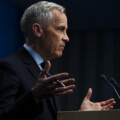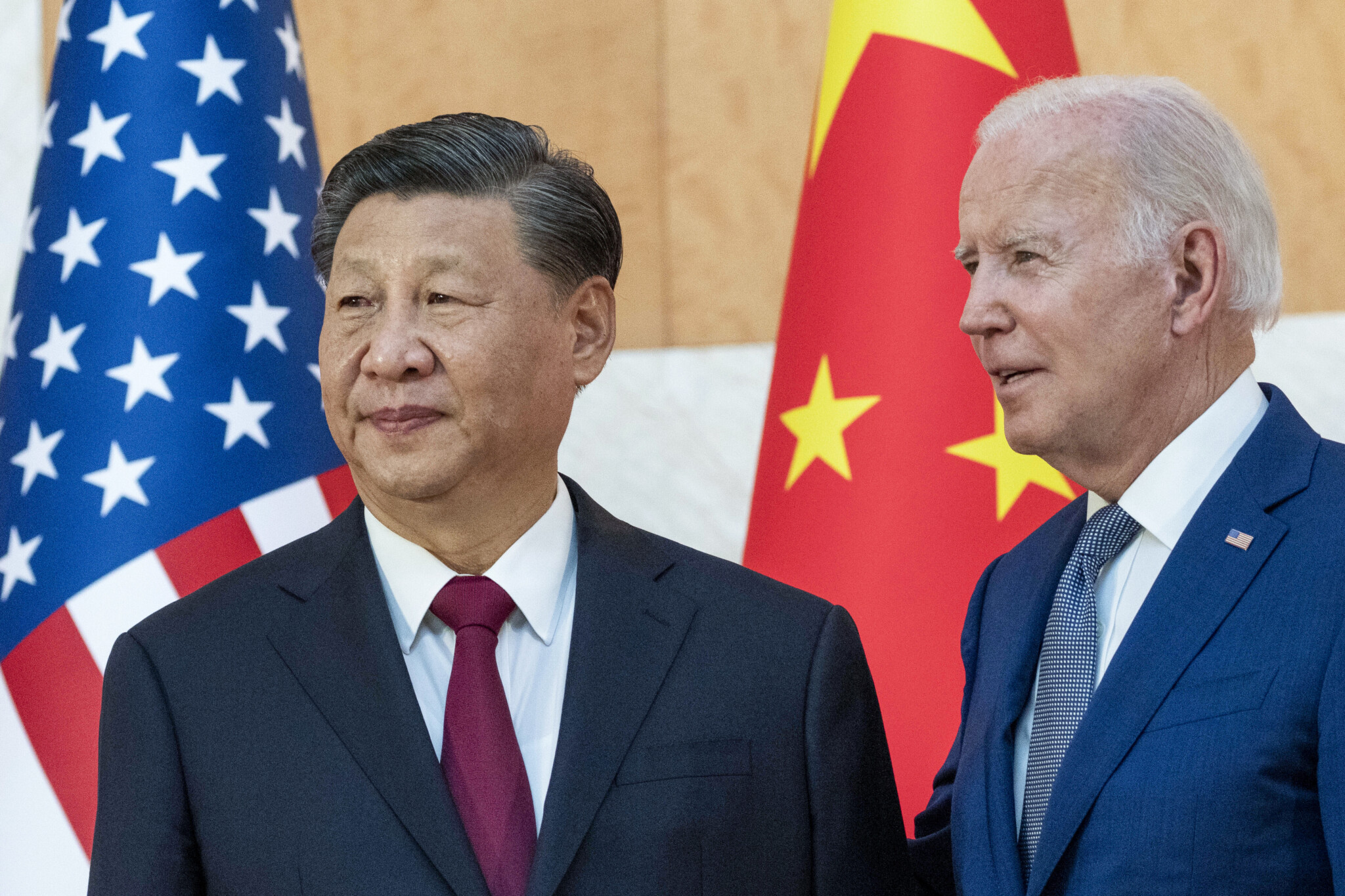William Thorsell sympathises with those countries, such as Russia and China, who feel that the postwar order is a vicious one, constructed without their consent, and irredeemably hostile to their interests. In this world view America has been the primary force imposing the liberal international order criticised by autocrats and authoritarians everywhere. Cutting America down to size and recasting postwar institutions and practices more in the image of Beijing, Moscow, and their ilk would, allegedly, bring about a fairer and more just world.
I take the opposite view, of course, namely that the period of unprecedented order, peace and prosperity the world has enjoyed in the postwar years under the Pax Americana has benefited not only the liberal democracies but people everywhere. Freer trade, freedom of the seas, the essential neutralisation of the threat of nuclear conflict between states, the ease of travel, the promotion of human rights, the exuberant exchange of ideas and capital, and the explosive growth of technologies and markets across borders have raised incomes and the quality of life in every corner of the globe.
Virtually all of this was resisted by the world’s autocrats, who preferred poverty-inducing centralised control to the unpredictable and uncontrollable innovation that results from empowering individuals and civil society. The fact that the liberal international order has succeeded as much as it has is largely down to the liberal democracies, under American leadership, chivying along reluctant authoritarians.
Clearly, however, Thorsell and his sympathisers see the same postwar world I do and come to a different conclusion about its desirability. So rather than argue the merits of that order, I propose something different. Let us test the proposition that the world yearns to be freed from the yoke of the institutions and relationships that are the warp and weft of the postwar world. In other words, who wants to move into America’s neighbourhood, and who wants to be in the authoritarians’ camp? If the world’s people could vote with their feet, where would they go?
As I write this, China is actively engaged in intimidating its neighbour Taiwan through military exercises meant to punish the island’s voters for having had the temerity to elect a president from a party that opposes unification with the People’s Republic. Taiwan’s survival in the face of Chinese hostility depends on America’s support for the proposition that it is for the Taiwanese to decide their own future. They desperately seek admission to America’s neighbourhood.
In defiance of international law, China has claimed the entire South China Sea, expanded islands and atolls throughout the region, established military bases they denied they were building, and now sit astride the shipping lanes and energy-supply corridors of all their neighbours from Singapore to Japan. In response, the bulk of the littoral countries seek closer relations with America as a counterweight to China.
Ukrainians are, today, engaged in a life or death struggle with their neighbour, the Russian Federation, whose unprovoked invasion is the first large-scale attempt since the Second World War to change borders in Europe by force. For Ukraine, admission to the American neighbourhood (including eventual NATO membership) is a matter of life and death.
If you are one of the 20 million or so residents of Seoul, Korea, you live in the shadow of vast artillery forces massed just across the border in neighbouring North Korea. The same madman who controls that artillery also possesses nuclear weapons and every time he needs cash he engages in nuclear blackmail by lobbing a missile in the general direction of nearby Japan, improving his aim a little bit each time. Little wonder that both Korea and Japan prize their membership in America’s neighbourhood above all else.
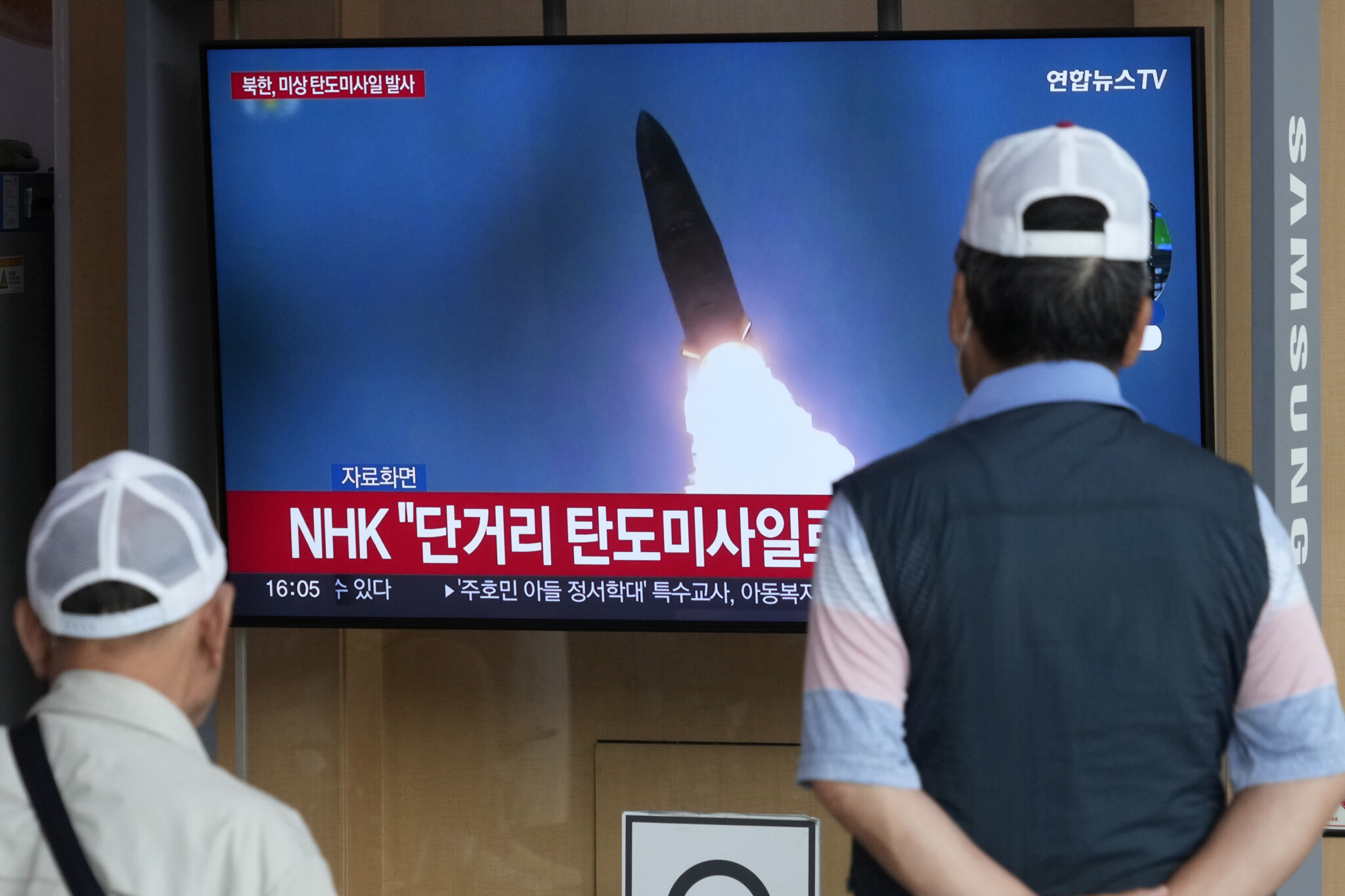
A TV screen shows a file image of North Korea’s missile launch during a news program at the Seoul Railway Station in Seoul, South Korea, Friday, May 17, 2024. Ahn Young-joon/AP Photo.
Israel’s neighbours in the Gaza Strip and Lebanon include armed militias (Hamas and Hezbollah respectively) actively financed and armed by a third neighbour, the Islamic Republic of Iran. All three have promised to spare no effort not merely to defeat the “Zionist entity” militarily but to erase it from the Earth. Israel might well survive on its own, but being in the American neighbourhood has been a virtual guarantee of its survival.
In support of these anti-Israel efforts the Iran-aligned Houthis, a tribe in a slightly more distant neighbour, Yemen, rain rockets down on the world’s shipping passing through the Suez Canal, disrupting supply chains and raising prices for goods around the world. America and its allies lead the effort to fend off these attacks and to protect the freedom of the seas on which so much depends.
In South America, newly oil-rich Guyana’s neighbour Venezuela is clearly preparing the ground for the military seizure of Guyana’s Essequibo region, eschewing negotiation of its border claims in favour of naked force. Uncertainty as to whether Guyana is in America’s neighbourhood may be one of the few things making Venezuela hesitate and Guyana does not seem to be clamouring to join the authoritarians’ neighbourhood.
In none of the places I have listed do the residents want to see Beijing, Moscow, Tehran, Pyongyang, or Caracas empowered to impose their will on their neighbours.
The only places where we see a desire to move more into the authoritarians’ world is where lesser authoritarians feel their grip on power is weak and they need help oppressing their own people.
Thus Caracas is happy to have the help of Cuba and Iran in consolidating its otherwise tenuous hold on power.
Syria’s President Bashar Assad was thrilled to offer Russia a coveted Mediterranean naval base in exchange for support in its campaign to slaughter hundreds of thousands of its citizens for the sin of preferring a different regime in Damascus.
And of course Russia itself has relentlessly pursued an ever-closer relationship with Beijing in Moscow’s efforts to evade the sanctions imposed on it by much of the world in response to its unprovoked invasion of Ukraine.
By contrast, Finland and Sweden, who have long hovered on the borders of America’s neighbourhood, took one look at Russia’s aggression in Ukraine and promptly applied for NATO membership. When the countries of eastern and central Europe finally freed themselves from subjection to the Soviet Union the very first thing they did was to apply to move to America’s neighbourhood.
Countries like India, Australia, and Japan, fearful of finding themselves facing an expansionist China alone, have rushed to bind America to their region and security more firmly by creating new security organisations such as AUKUS and the Quad.
And here at home, when Canadians are honest with ourselves we acknowledge that we can skimp on defence spending, not because no one wants to attack us nice Canadians, but because everyone in the world knows whose neighbourhood we live in; you couldn’t attack Canada without America intervening. We shamelessly free-ride on America’s towering strength and then wag a moralistic finger self-righteously in their face over relatively minor features of the way that they led the world to unheard-of peace and prosperity.
Remember that talk is cheap, including talk about the inequities of the postwar order. If you really want to know what people think and feel, watch how they act. In this case, never forget many countries fear that America will cease to count them as part of their neighbourhood, while others fervently seek admission, all fearing a world in which they must face the world’s authoritarians alone. By the same token, millions of individuals aspire to move to America or to the countries in its neighbourhood. In fact, so many are headed here that it risks destabilising the very societies these teeming migrants wish to join.
On the other hand, there are no queues at the entrance to, and vast numbers of people hovering near the exit from, the odious regimes that Thorsell wishes to see be given more power and influence.
The fact that we have built an international order where the world’s bullies meet real obstacles to their naked ambition and real consequences for their brutality is a cause for neither sorrow nor regret, but rather celebration. Our respective neighbourhoods, and the balance of power between them, are vastly preferable to the alternative.
Recommended for You

The Notebook by Theo Argitis: Mark Carney’s first major tests

Ben Woodfinden: Lament for an ‘elbows up’ nation
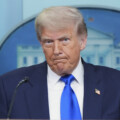
‘We knew something was coming’: Joseph Steinberg on how Trump is ramping up his latest tariff threats against Canada
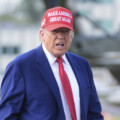
Rudyard Griffiths and Sean Speer: Canada’s high-stakes standoff with Trump
